Humans
Sign up for our newsletter
We summarize the week's scientific breakthroughs every Thursday.
-
 Health & Medicine
Health & MedicineRecent advances may improve Jimmy Carter’s chances against melanoma
Improvements in melanoma treatment over the last five years may aid former President Jimmy Carter’s battle against the disease.
-
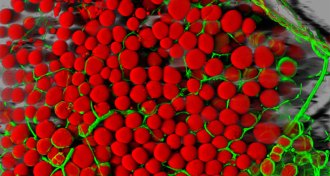 Genetics
GeneticsGene thought to cause obesity works indirectly
Researchers have discovered a “genetic switch” that determines whether people will burn extra calories or save them as fat.
-
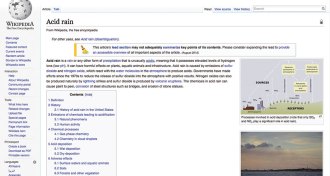 Science & Society
Science & SocietyContentious science topics on Wikipedia subject to editing mischief
Global warming and other politically charged issues are prime targets for sabotage on Wikipedia.
By Meghan Rosen -
 Health & Medicine
Health & MedicineStiff cellular environment links obesity to breast cancer
Obesity may directly support tumor growth by making a cell’s surroundings stiffer.
-
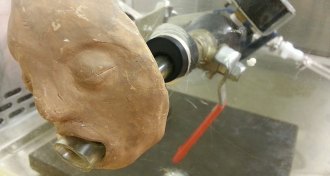 Health & Medicine
Health & Medicine‘Vomiting device’ sounds gross but it helps study infections
Scientists created a “vomiting device” to study how norovirus spreads through the air.
-
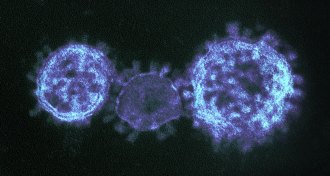 Life
LifeExperimental MERS vaccine shows promise
An experimental vaccine against the MERS virus triggers immune protection, a new study finds.
By Nathan Seppa -
 Health & Medicine
Health & MedicineStudy finds early signs of bookishness in a child’s brain
Children from book-friendly homes show higher brain activity when they hear a story, but there’s more to learn about how reading affects growing brains.
-
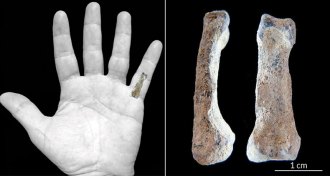 Anthropology
AnthropologyOldest humanlike hand bone discovered
Found at Tanzania’s Olduvai Gorge, pinkie bone is 1.84 million years old.
By Bruce Bower -
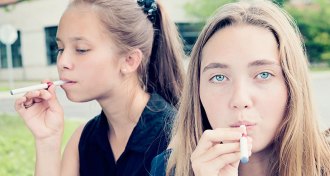 Health & Medicine
Health & MedicineTeen e-cig users more likely to smoke tobacco
E-cigarette use is linked to later tobacco use in teens.
By Meghan Rosen -
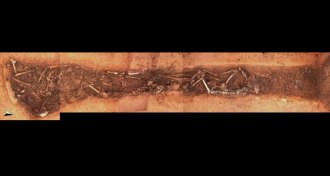 Anthropology
AnthropologyBones revive a 7,000-year-old massacre
Bones suggest Central Europe’s first farmers had an extremely violent streak.
By Bruce Bower -
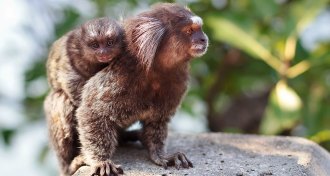 Psychology
PsychologyBaby marmosets imitate parents’ sounds
Vocal learning may work similarly in marmoset monkeys, songbirds and humans.
By Bruce Bower -
 Astronomy
AstronomyLucy’s new neighbor, downloading New Horizon’s data and more reader feedback
Readers discuss why Pluto's data will take so long to get to Earth, the role the cerebellum plays in creative thinking and more.